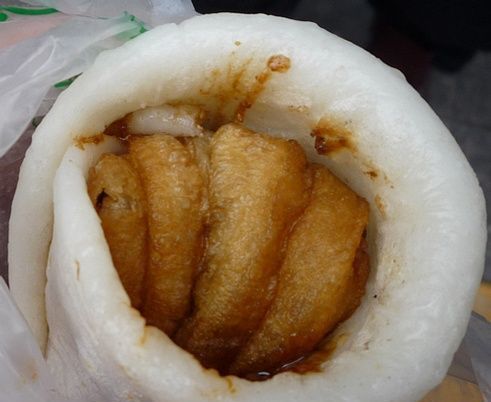饺子起源的传说
|
马上就到大年三十啦,你家有吃饺子的习俗吗?过年吃饺子是中国北方延续已久的传统年俗。 关于饺子的起源传说众多,其中一种说法是饺子源于东汉时期,为医圣张仲景首创。当时饺子是药用,张仲景用面皮包上一些祛寒的药材用来治病(羊肉、胡椒等),避免病人耳朵上生冻疮。 Zhang noticed that many people's ears were frostbitten when he returned to his hometown one winter. He decided to wrap mutton, chilli and some warming medicinal herbs in dough skin. Folding them into the shape of an ear, he boiled them in water before giving them to the poor. 有一年冬天,张仲景回乡时发现很多人的耳朵都冻伤了。他决定用面皮包上羊肉、胡椒和一些温补的草药,把它们折成耳朵的形状,在水里煮熟,然后送给穷人。 This food was originally called "Jiao'er" for its shape, and later the name slowly became Jiaozi. 最初因其形似耳朵而被称为“娇耳”,后来慢慢变成了饺子。 如今,饺子已经成为北方人餐桌上必不可少的美食,是家和温暖的象征。饺子形如元宝,新春佳节吃饺子,寓意着“招财进宝”。不同馅料的饺子有不同的含义,寄托了人们对新一年的美好期盼。 Celery stuffing represents industriousness and (resulting) wealth. 芹菜(Celery) sounds like 'industrious wealth' (勤财). Leek stuffing represents long-term wealth. 'Leek' (韭菜) sounds like 'industrious wealth' (久财). 芹菜馅代表着勤劳和财富,因为芹菜听起来像“勤财”。韭菜馅代表富贵永久,因为韭菜 听起来像“久财”。 Cabbage stuffing represents the blessing for a well-off life for a hundred years. 白菜(Cabbage) sounds like 'hundred wealth' (百财). 白菜馅代表了生活幸福长久的祝福。白菜听起来像“百财”。 Fish stuffing means surplus wealth. Reason: 'Fish' (鱼) sounds the same as 'surplus' (余). Eating fish dumplings means wishing you have a lot of remaining money. 鱼肉馅的饺子意味着财富盈余。因为鱼与“余”同音。吃鱼肉饺子意味着财富多多的祝福。研究发现,贫穷不仅会影响孩子的学业成绩和未来收入,还会改变宝宝的大脑活动水平,而且这种改变在宝宝出生的第一年就开始发生了。 |








